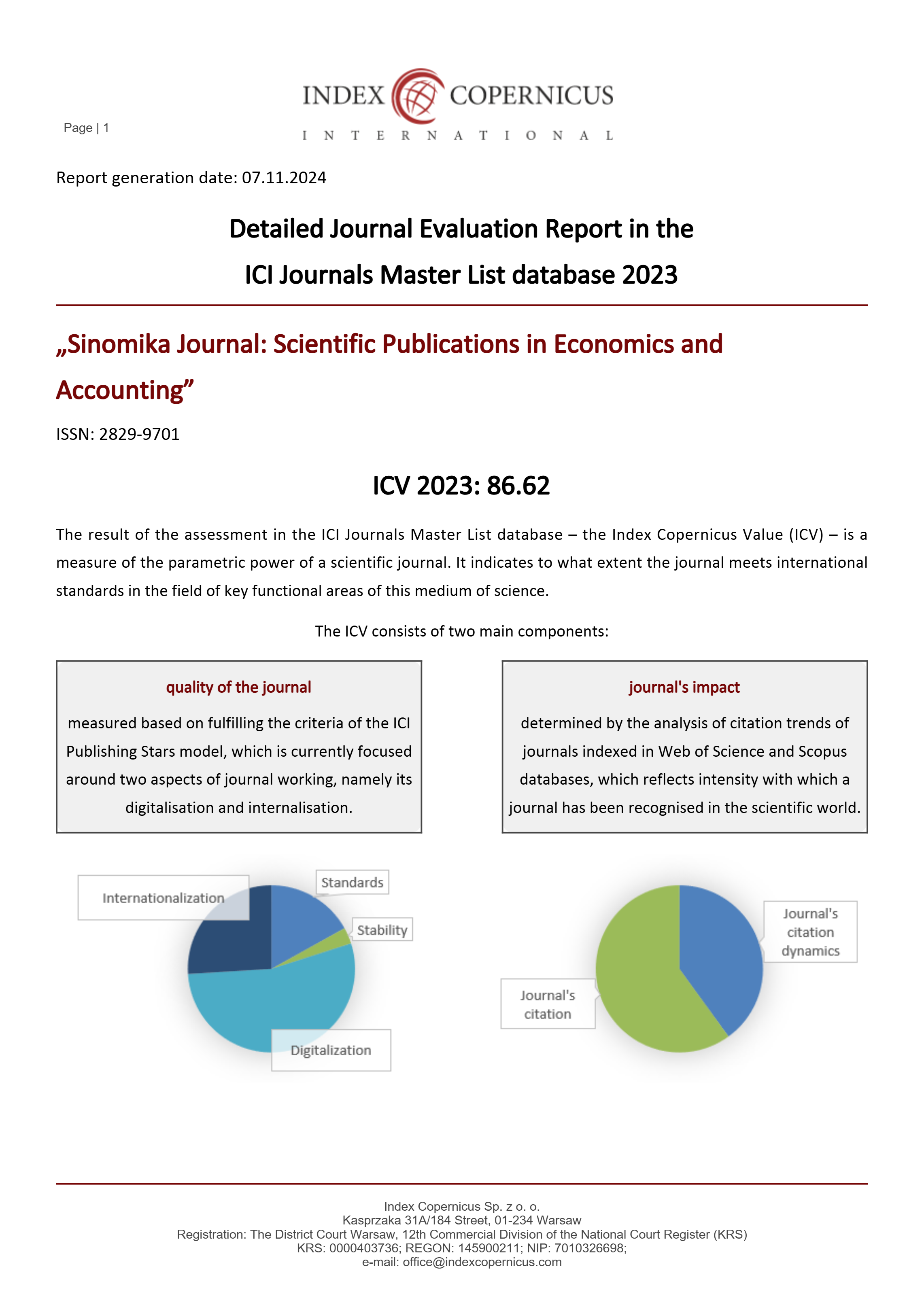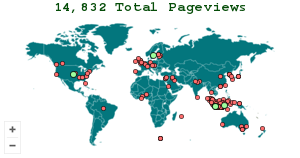Global Economic Trends and Their Impact on International Accounting Standards: A Comparative Analysis
DOI:
https://doi.org/10.54443/sinomika.v3i6.2614Keywords:
Globalization, Accounting Standards, IFRS, Financial Crises, Technological AdvancementsAbstract
This paper explores the evolving relationship between global economic trends and accounting practices, with a particular focus on the adoption and impact of International Financial Reporting Standards (IFRS). The study examines how economic globalization, financial crises, and technological advancements have shaped accounting standards and practices worldwide. Globalization has driven the need for harmonized accounting standards to enhance comparability and transparency in financial reporting across borders. However, the pace of IFRS adoption varies, with challenges in emerging markets due to differences in legal systems, financial infrastructures, and institutional readiness. The 2008 global financial crisis highlighted the shortcomings of existing accounting frameworks, particularly in terms of fair value accounting, leading to calls for more robust and transparent financial reporting mechanisms. Technological advancements, including the rise of artificial intelligence (AI), blockchain, and automated financial reporting, are transforming the accounting profession, presenting both opportunities and challenges. While these technologies promise greater efficiency and accuracy, they also introduce new risks, such as cybersecurity threats and data manipulation concerns. The findings underscore the need for continued reform and collaboration among international bodies to create adaptable and responsive accounting standards that can meet the demands of an ever-evolving global economic landscape.
Downloads
References
Ball, R. (2006). International Financial Reporting Standards (IFRS): Pros and Cons. Journal of Accounting and Economics, 42(1), 1-26.
Barth, M. E., & Schipper, K. (2008). Financial Reporting Transparency and the Impact of IFRS Adoption. Journal of Accounting Research, 46(2), 69-106.
Barth, M., Landsman, W., & Lang, M. (2008). International Accounting Standards and Accounting Quality. Journal of Accounting Research, 46(3), 467-498.
Bens, D. A., & Monahan, S. J. (2005). Disclosures about the Future and the Recognition of Revenue. Accounting Horizons, 19(2), 111-130.
Beuselinck, C., & Deloof, M. (2008). The Convergence of Financial Reporting Standards: IFRS Adoption and Market Liquidity. International Journal of Accounting, 43(1), 1-26.
Choi, F., & Meek, G. (2008). International Accounting. Prentice Hall.
Cohen, D., & Pae, J. (2010). The Role of National Accounting Standards in Global Financial Reporting. Review of Accounting Studies, 15(1), 37-67.
Doupnik, T. S., & Perera, H. (2009). International Accounting. McGraw-Hill Education.
FASB. (2009). Financial Crisis and Its Impact on Financial Reporting. Financial Accounting Standards Board.
Faff, R. W. (2001). The Role of Accounting Information in Financial Markets. Accounting and Finance, 41(2), 123-142.
Firth, M., & Smith, C. (2013). International Accounting Harmonization: Evidence from the European Union. Journal of International Business Studies, 44(3), 35-56.
Gjerde, O., & Knivsflå, K. (2008). The Globalization of Financial Reporting Standards: The Case of IFRS. International Journal of Accounting, 43(3), 273-302.
Hail, L., Leuz, C., & Wysocki, P. (2010). Global Accounting Convergence and the FASB. Journal of Accounting and Economics, 51(3), 267-286.
Hines, R. D. (2003). Financial Accounting and Global Capitalism: A Historical Perspective. Accounting, Organizations and Society, 28(7-8), 665-692.
Hughes, J. P., & Paliwal, V. (2007). The Impact of IFRS on Financial Reporting in Emerging Economies. International Accounting Review, 23(3), 213-232.
Jensen, M. C., & Meckling, W. H. (1976). Theory of the Firm: Managerial Behavior, Agency Costs, and Ownership Structure. Journal of Financial Economics, 3(4), 305-360.
Kvaal, E., & Nobes, C. (2010). International Differences in IFRS Policy Choice. Accounting and Business Research, 40(2), 173-198.
La Porta, R., Lopez-de-Silanes, F., & Shleifer, A. (1998). Law and Finance. Journal of Political Economy, 106(6), 1113-1155.
Laux, C., & Leuz, C. (2010). Did Fair Value Accounting Contribute to the Financial Crisis? Journal of Economic Perspectives, 24(4), 93-118.
Lin, W., & Yu, Y. (2015). The Role of Fair Value Accounting in Financial Crises. Journal of International Accounting, Auditing and Taxation, 24(1), 22-36.
Nobes, C. (2006). The Convergence of National Accounting Standards: An Analysis of IFRS Adoption. Accounting in Europe, 3(1), 67-80.
Sikka, P. (2009). Financial Accounting and the Global Financial Crisis: An Overview. Accounting, Organizations and Society, 34(6-7), 1-13.
Susskind, R. (2020). The Future of the Accounting Profession: How AI and Blockchain Will Transform Finance. Journal of Accounting Technology, 34(2), 112-125.
Zeff, S. A. (2007). The Evolution of the International Accounting Standards Board. Accounting Review, 82(6), 1559-1585.
Downloads
Published
How to Cite
Issue
Section
License
Copyright (c) 2025 Leonora T. Malibiran, Ceazar Jose H. Leyba

This work is licensed under a Creative Commons Attribution 4.0 International License.

























